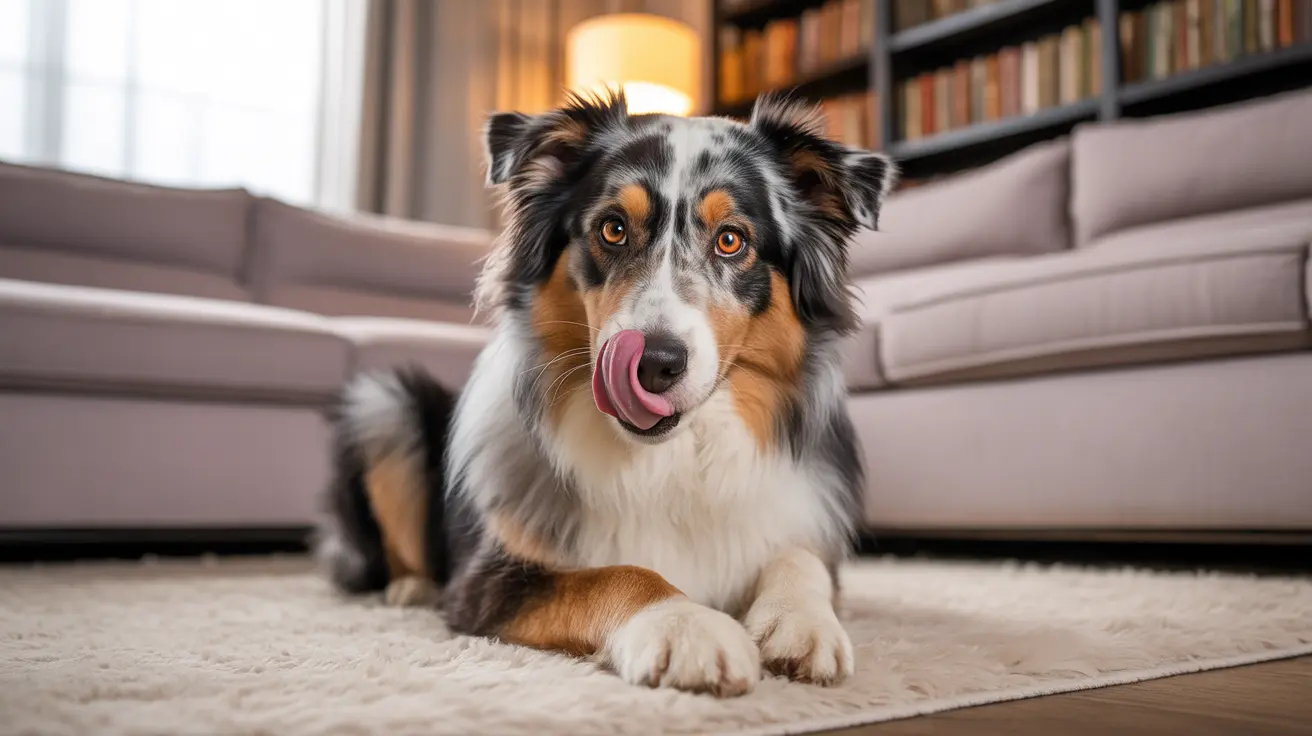If you've ever watched your dog obsessively licking their paws, you're not alone. While occasional paw licking is part of normal canine grooming behavior, excessive attention to the paws can signal various underlying issues that require attention. Understanding why dogs engage in this behavior and knowing when to seek help is crucial for maintaining your pet's health and wellbeing.
From allergies and injuries to stress and anxiety, the reasons behind paw licking can be diverse and complex. Let's explore the various causes and solutions to help your furry friend find relief.
Common Reasons Why Dogs Constantly Lick Their Paws
Dogs may lick their paws for several legitimate reasons. The most common triggers include:
- Allergies (environmental or food-related)
- Skin infections or irritations
- Physical injuries or foreign objects
- Parasites (fleas, ticks, or mites)
- Dry or itchy skin
- Joint pain or arthritis
Environmental and Seasonal Allergies
Many dogs develop allergic reactions to common environmental substances like pollen, mold, dust, or grass. These allergens often affect dogs' paws first because they're in constant contact with the ground. Seasonal changes can make these allergies more pronounced, leading to increased paw licking during spring and fall.
Physical Injuries and Irritants
Dogs may focus on a particular paw if they've stepped on something sharp, developed a blister, or gotten a foreign object stuck between their paw pads. Hot pavement in summer or ice-melting chemicals in winter can also cause irritation that leads to excessive licking.
Why Does My Dog Bite His Paws?
When licking escalates to biting, it often indicates a more serious issue requiring immediate attention. Dogs may bite their paws due to:
- Intense itching from allergies
- Pain from injuries or infections
- Anxiety or stress-related behaviors
- Obsessive-compulsive tendencies
- Bacterial or yeast infections
Addressing Dog Constantly Licking Paws
If your dog won't stop licking their paws, consider these management strategies:
- Regular paw inspection and cleaning
- Using protective boots during walks
- Implementing an appropriate flea and tick prevention program
- Maintaining a consistent grooming routine
- Consulting with your veterinarian for proper diagnosis and treatment
Treatment Options
Treatment approaches vary depending on the underlying cause:
- Antihistamines or specialized medications for allergies
- Antibiotics for bacterial infections
- Antifungal treatments for yeast infections
- Anxiety medications or behavior modification for stress-related licking
- Environmental modifications to reduce allergen exposure
Frequently Asked Questions
Why do dogs constantly lick their paws, and when should I worry?
While occasional paw licking is normal, constant licking that persists for more than a few days, causes skin changes, or is accompanied by redness, swelling, or limping requires veterinary attention. It's particularly concerning if the behavior develops suddenly or focuses on one specific paw.
How can I tell if my dog's paw licking is due to allergies or injuries?
Allergic reactions typically affect multiple paws and may be seasonal, while injuries usually focus on a single paw. Allergies often come with additional symptoms like ear infections or general itchiness, whereas injuries might cause limping or visible wounds.
What are the best ways to prevent and treat excessive paw licking in dogs?
Prevention includes regular paw cleaning, using protective boots when needed, maintaining flea prevention, and addressing environmental allergens. Treatment should be based on the underlying cause, as determined by your veterinarian.
Can stress or anxiety cause dogs to lick their paws excessively, and how can I address it?
Yes, stress and anxiety can lead to excessive paw licking. Address this through increased exercise, mental stimulation, consistent routines, and potentially professional behavioral training or anxiety medication prescribed by your veterinarian.
What are the warning signs that my dog's paw licking requires immediate veterinary attention?
Seek immediate veterinary care if you notice bleeding, severe swelling, limping, discharge, or signs of pain. Also watch for color changes in the paw pad, unusual odors, or if your dog becomes aggressive when the paw is touched.






